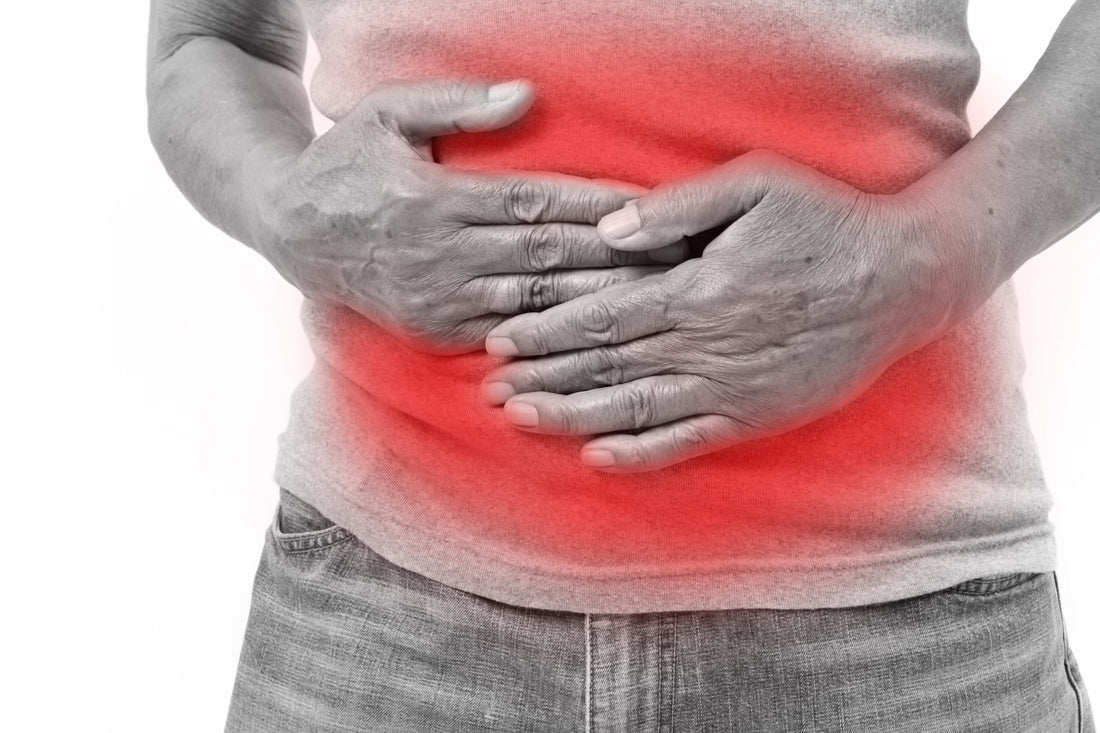The holiday season is here and with it comes all kinds of delicious meals and opportunities to indulge in overeating. People tend to turn to food this time of year for so many different reasons and it’s not too hard to overdo it. A common result of this tradition during the holidays is the dreaded heartburn.
Let’s take a closer look at heartburn and how to manage it during the holidays.
What Causes Heartburn?
Heartburn is a burning sensation in the chest caused by stomach acid flowing back up into the esophagus. The esophagus is the tube connecting your mouth to your stomach. It's often triggered by eating too much or too quickly, drinking alcohol or coffee (or both!), or smoking. Some people may experience heartburn after taking certain medications, such as aspirin or other nonsteroidal anti-inflammatory drugs (NSAIDs).
There are many causes for increased stomach acidity. Each cause might effect the body in a different way, but the results are all the same. Let take a look at a few common causes of heartburn.
- Eating fatty foods causes heartburn by delaying the stomach emptying process
- Eating spicy foods causes heartburn by irritating the lining of the esophagus
- Drinking alcohol causes heartburn by relaxing the lower esophageal sphincter
- Smoking cigarettes causes heartburn by irritating the lining of the esophagus
- Pregnancy can cause heartburn by putting pressure on the lower esophageal sphincter
The increase in stomach acid production caused by the methods listed all can result in heartburn.
During the holiday season, you may find yourself indulging in more than usual which can lead to an increase in stomach acidity—especially if you’re already prone to digestive problems like heartburn.
Treating Heartburn
If you experience heartburn due to an increase in stomach acidity, there are several ways to treat it. First, you should avoid eating large meals that are likely to cause further indigestion and opt for smaller portions instead. You should also avoid eating late at night as this can trigger increased stomach acid production during sleep. Some simple lifestyle changes such as avoiding tight clothing and lying down after eating can help reduce heartburn symptoms as well. Additionally, over-the-counter antacids may provide relief from occasional bouts of heartburn but shouldn’t be taken long-term without consulting a doctor first.
Chronic Conditions
In some cases, increased stomach acidity may be indicative of an underlying condition such as gastroesophageal reflux disease (GERD). If you experience frequent or severe bouts of heartburn that don’t respond well to home remedies or medications then it is important to speak with your doctor about possible chronic conditions that could be causing it. GERD is one such condition that requires medical attention so don’t hesitate to seek medical care if you think it might be necessary for your situation.
Stomach acidity is something that affects many people, especially during the holiday season when we tend to eat more than usual. It is important to keep track of the food we eat in order to prevent its associated symptoms. Heartburn can be uncomfortable at best and dangerous at worst if left untreated for long periods of time. While occasional bouts of heartburn can be managed with home remedies or over-the-counter medications, more severe cases may require medical attention. As always, make sure you consult with your doctor if necessary!
Looking for a supplement to fix that holiday indigestion? Click here to learn about AlchemLife's Phytocid supplement.

